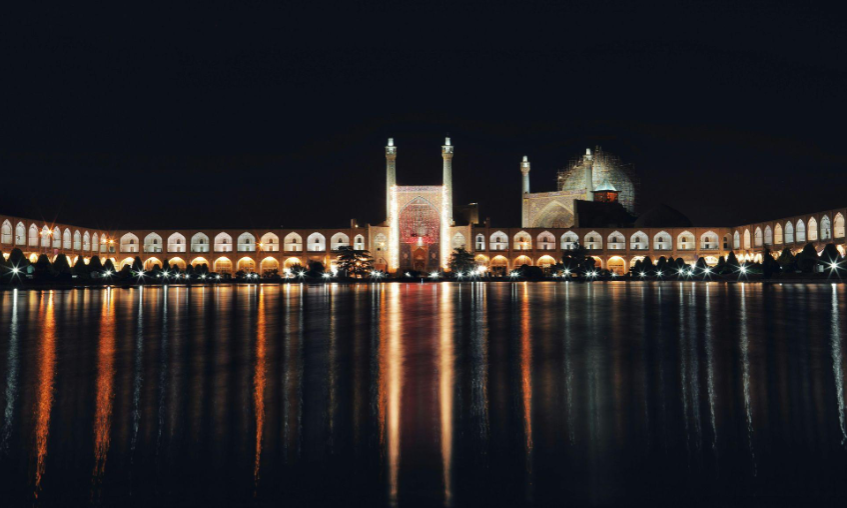The Iran-Israel War and China: Global Ambitions, Limited Leverage?

This article is part of a series of articles authored by young, aspiring China scholars under the Future CHOICE initiative.
With the Iran-Israel war ending in a fragile ceasefire, China faces a dilemma as an aspiring global power: how to remain influential without engaging militarily while the United States once again reasserts its grip on conflict and diplomacy in a region Beijing depends on for energy security.
The Iran-Israel war may have ended – for now – with a fragile ceasefire, but its geopolitical fallout is only beginning. Trump has already warned that fighting could resume soon, casting doubt on the ceasefire he brokered. His approach to international relations, combined with Israel’s 12-day war against Iran, has effectively ushered in a new phase of the maximum pressure campaign – a campaign that does not limit itself to economic sanctions or shy away from brute force. This development reasserts US dominance and places the China-Iran relationship, which had deepened under Biden’s presidency, under considerable strain.
The Trump Factor
In an interview prior to the US elections, Javad Zarif, former Iranian Foreign Minister and Vice President for Strategic Affairs, remarked that “there’s a variety of opinions in Iran about whose election would benefit Iran.” However, the 12-day war has made one thing clear: Trump’s closeness to Israel, his willingness to take decisive action, and his inherent unpredictability make him a highly problematic figure for the Iranian regime. These factors may well explain why the regime allegedly attempted to assassinate him.
In addition to his affinity for Israel, Trump’s grudge toward Iran might be more personal and therefore more difficult to resolve. In 1978 Trump visited Iran with plans to open a casino in the north of the country. These plans never materialized due to the establishment of the Islamic Republic of Iran and the new regime’s holding of American diplomats hostage for 444 days, leading to sanctions and the Carter administration officially severing formal diplomatic relations with Iran.
Yet, beneath Trump’s resentment toward the regime lies a familiar pattern: what he ultimately craves is respect from those he considers near-equals. Trump has repeatedly expressed admiration for authoritarian leaders, often praising their strength. Khamenei, Iran’s Supreme Leader, not only refused Trump’s demand of “unconditional surrender” but declared victory over Israel and called the word surrender “too big for the mouth of the American president.”
Seemingly enraged by Khamenei’s defiance, Trump stated that he had dropped the possibility of removing sanctions, while expressing hope that Iran would abandon its rhetoric of hostility. Therefore, whether or not the Iranian regime will face a continuation of the war or the easing of sanctions seems to depend, at least in part, on its willingness to move away from its traditional anti-US rhetoric and, perhaps more importantly, to publicly concede to the level of humiliation or “gratitude” that Trump seems to demand from Khamenei himself.
Pragmatism Over Ideology: Will Beijing Cut Tehran Loose?
The aftermath of Israel’s strikes on Iranian territory and the subsequent US bombardment of Iran’s Fordow nuclear facilities have effectively shattered President Pezeshkian’s ambition of re-engaging the West. With the Iranian ambassador to the UN declaring that Washington had “destroyed the negotiation table,” Tehran may once again be forced to retreat into the limited options provided by its long-touted ‘Look East’ policy.
For now, China remains central to the Islamic Republic’s survival strategy. The real test of this relationship will come if Iran follows through on its threat to close the Strait of Hormuz in response to future Israeli or US attacks. Given that China imports about 45 percent of its oil and 30 percent of its liquified natural gas through the Strait of Hormuz, a closure would pose a substantial risk to its energy security. In response, Beijing has accelerated efforts to diversify its energy supply routes, notably by reconsidering plans for the Power of Siberia 2 pipeline, which had been put on hold over pricing disagreements.
Meanwhile, additional volatility is introduced by the possibility of imminent regime change. Israeli Prime Minister Benjamin Netanyahu has repeatedly addressed the Iranian people, more prominently on the anniversary of October 7, stating they would “soon be free” – a message he repeated a day after the war started on June 13. Trump briefly echoed this rhetoric, stating that “if the current Iranian Regime is unable to MAKE IRAN GREAT AGAIN, why wouldn’t there be a Regime change???” – only to reject regime change shortly after brokering the truce.
For its part, China has remained characteristically silent on the issue. However, the example of Syria’s Bashar al-Assad is instructive: no tears will be shed, only adjustments will be made. In fact, a more pro-Western, sanction-free Iranian government could offer Beijing new opportunities for deeper economic and diplomatic engagement. China’s renewed focus on the Power of Siberia pipeline already reflects the reality that its ties with the Islamic Republic are becoming increasingly difficult to sustain.
US-China Rivalry: China’s Limited Leverage
The Iran-Israel war has starkly highlighted the limitations of China’s approach to the Middle East. Despite its growing economic presence and strategic partnerships in the region, Beijing’s role during the conflict was marginal. While the United States demonstrated military and diplomatic dominance, China’s calls for de-escalation and offers to mediate were largely disregarded.
The wider strategic rivalry between China and the United States is omnipresent. Had the Iran-Israel war dragged on, China might have gained a strategic breather in its Indo-Pacific contest with the US, allowing Beijing to further consolidate power in Asia while Washington was preoccupied. On the other hand, the swift resolution of the war by the US and its ally reinforced the US as the primary security actor in the Middle East, leaving Beijing in an insignificant role.
For China, which has tried to cast itself as a “global peacemaker” – by, for example, brokering the earlier Saudi-Iran détente – the Iran-Israel war was a humbling episode. The US emerged both as a peacemaker and an agent of chaos, as well as a dominant power that can still upend regions at will. In practical terms, this episode may harden China’s resolve to reduce vulnerability to US actions – whether that means insulating its economy from the Strait of Hormuz or doubling down on building coalitions in the Global South to counter US influence.
The Iran-Israel war has laid bare vulnerabilities in China’s Middle East strategy: heavily dependent on a volatile region for oil and gas, allied to a theocratic regime prone to crises, and lacking both the influence and the willingness to shape events or shield itself from their fallout. How Beijing adjusts in the aftermath will have consequences far beyond the Middle East, resonating across the broader US-China rivalry. Yet as long as China is unwilling or unable to engage more assertively in the region – or any other region – it will remain vulnerable and continue to face limits to its global influence.
Written by
Oliver Konradt
Oliver Konradt holds a BSc. in Psychology from the University of Groningen and an MA. in International Governance and Diplomacy from Sciences Po Paris. His areas of interest include Chinese energy and foreign policy, and the China-Iran relationship.


